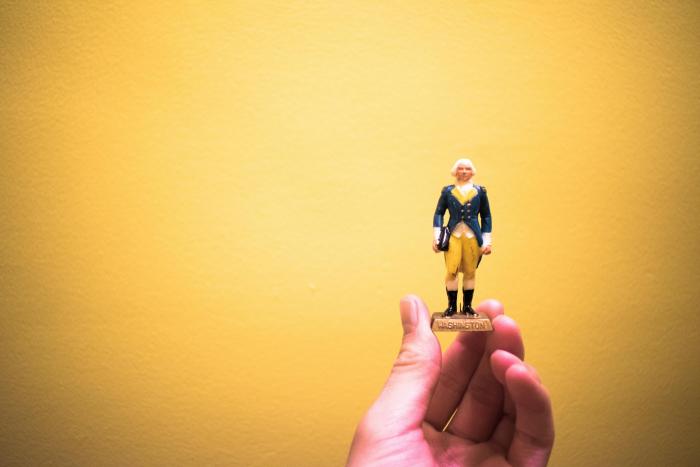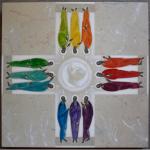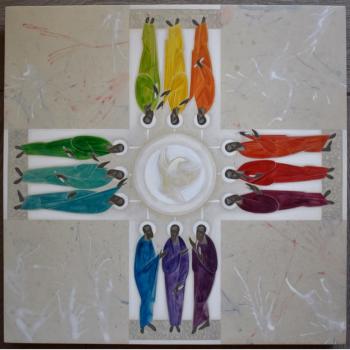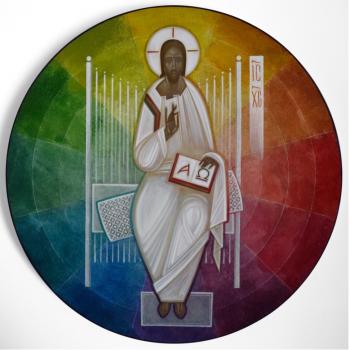
Is it possible to be committed to The Church if you’re not committed to a church?
— Kevin Antlitz (@KevinAntlitz) November 5, 2021
This was a question I posed on Twitter last week and I was shocked at the response. It definitely struck a chord.
Upon reflection, I suppose it makes sense that people have strong opinions about this, given the rise of the Nones as well as the prevalence of abuse in churches. Of course, this is not to mention the impact of the pandemic on church commitments and attendance.
As Twitter goes, the responses were polarized. Some people assumed the very worst intentions behind the question, as well as the responses, etc. etc.. Nevertheless, there were some thoughtful answers. There was also a lot of pain expressed by people who have been hurt by the church. As a pastor (and a human), that was heartbreaking. The church has hurt a lot of people. Lord have mercy. Still, the answer – if I can call it that – is good, healthy churches, not ditching church altogether. Easier said than done, I know.
When I posed the question, I had a pretty good sense of my answer. My answer would have been no: one cannot be devoted to the people of God (as broadly defined as possible) unless one is devoted a local Christian community (as loosely defined as possible). I mean this in the same way that a person cannot really be a lover of humanity unless they love actual humans (who are invariably hard to love). In other words, there is no such thing as theoretical ecclesiological commitments. One proves the former (being committed to The Church) by the latter (being committed to a church).
That said, after reading some of the responses, I’ve softened my answer. I would now answer it something like this: in general, no but there are exceptions, especially for a season. (Exceptions include things like needing time and space to heal from abuse or perhaps living in a country where its illegal to be Christian). But if you can be a part of local church – and most Americans can – you ought to be. Otherwise your faith will be at great risk. It will be at risk of collapsing or of compromising before a more powerful center that binds your understanding of yourself, others, and the world together.
Right now, the most powerful force for shaping our notion of self, of other people, and the world is politics. This is true for those who identity as religious folk as well as those who don’t. The latter makes sense, but the former has come as a bit of a surprise.
Over the past few years, sociologists and political scientists have noticed a dramatic shift in where religious folk find their primary sense of identity. In the past , for those who identified as Christians, our religious affiliation tended to be the leading indicator in our identity. Now, however, our political affiliations take precedence.
According to Michelle Margolis, Associate Professor of Political Science at the University of Pennsylvania and author of From Politics to the Pews, people are now curating their religious affiliations based on their politics. That is, people are picking where to go to church based on their political views rather than theological ones.
This is new. In the past, the common thinking was that our religious commitments were upstream and our politics flowed down from them. Politics has now become primary.
To gauge whether you’ve been swept into this tide, ask yourself this question:
Would you be more likely to change your church if it doesn’t align with your politics or would you be more likely to change your politics if it doesn’t align with your church?
Be honest. Your answer will expose which is primary for you: your theological or political commitments.
The reason I bring all these socio-political trends up is because I think there is a convergence between the rise of the Nones and the trend towards a politics-dominant identity. Just to be clear, Nones are the folks who may or may not be religious but are religiously unaffiliated, which includes atheists, agnostics, spiritual but not religious people, some yoga teachers, and most millennials.
Today, religious commitment is more optional than ever because it’s taken a back seat to political commitment. I think this is terrible for those who follow Christ. It’s terrible for a whole host of reasons, not least of which includes the incommensurability of the Sermon on the Mount and either platform of the two American parties. We Christians have become confused about our commitments. Of course, Christians can affiliate with either party but when our primary allegiance is to a political party and platform and their vision kingdom building, the proverbial pooch has been screwed.
If one is not deeply rooted in a local church that’s committed to the way of Jesus (e.g., sitting under faithful teaching of the Scriptures, receiving the sacraments, submitted to good and godly authority, giving of their time, talent, and treasure, etc.), then the inevitable magnetic pull of politics will be all but irresistible. It’s almost irresistible even for those fully committed to a local church! This is, of course, not to mention that so many churches have essentially capitulated to either the Left or the Right. Alas…
Politics has become religious. By this I mean it has become the binding or unifying force of our lives. “Religion” is derived from the Latin religare which means “to bind or tie.” A religion binds our lives together. Politics has taken over the place of religion for being religious. Politics is now the glue that ties together our world.
This is one of the greatest areas of discipleship that the church needs to address.
This is why I answer the question the way I do. If someone is not committed to a local church, it’s not hard to imagine that they won’t be committed to The Church either before long.
…











